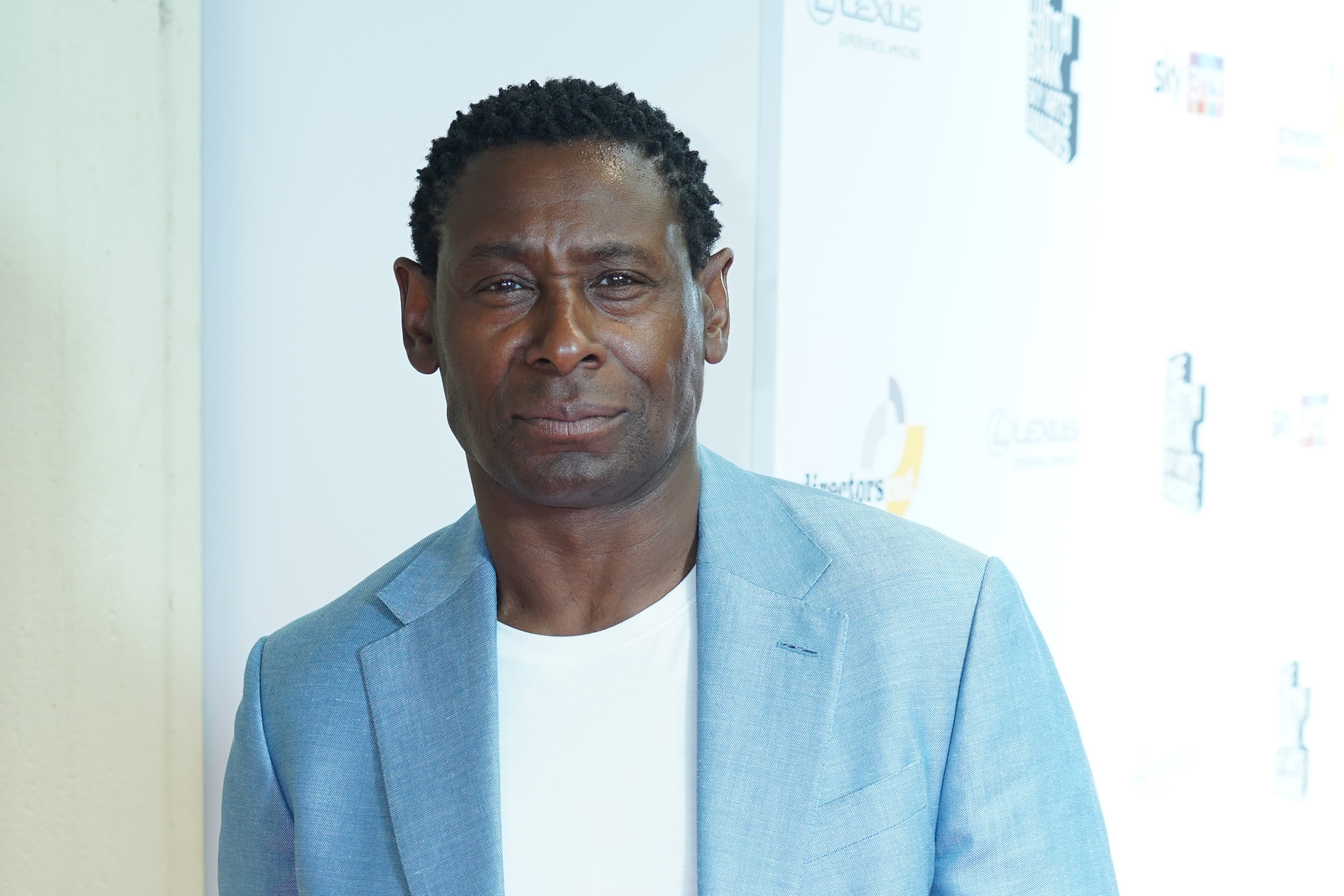David Harewood made OBE after raising awareness of mental health and racism
The actor has explored both issues in documentaries.

Your support helps us to tell the story
From reproductive rights to climate change to Big Tech, The Independent is on the ground when the story is developing. Whether it's investigating the financials of Elon Musk's pro-Trump PAC or producing our latest documentary, 'The A Word', which shines a light on the American women fighting for reproductive rights, we know how important it is to parse out the facts from the messaging.
At such a critical moment in US history, we need reporters on the ground. Your donation allows us to keep sending journalists to speak to both sides of the story.
The Independent is trusted by Americans across the entire political spectrum. And unlike many other quality news outlets, we choose not to lock Americans out of our reporting and analysis with paywalls. We believe quality journalism should be available to everyone, paid for by those who can afford it.
Your support makes all the difference.Actor and broadcaster David Harewood has been made an OBE in the New Year Honours list after becoming a prominent voice for better mental health support.
The 57-year-old, who found widespread fame playing CIA director David Estes in the US drama series Homeland, has been honoured for his services to drama and charity.
In 2019, Harewood created a one-off BBC documentary titled Psychosis And Me, which saw him retrace his steps and delve into his breakdown after being sectioned aged 23.
The acclaimed actor later backed the launch of a new online platform, JAAQ.co.uk (Just ask a question), which helps prevent people with mental health problems “reaching crisis stage”, from founder Danny Gray, who previously appeared on Dragons’ Den.
He told presenter Lauren Laverne on BBC Radio 4’s Desert Island Discs in May this year: “I started to sort of have these moments of blackouts and suddenly wake up at three o’clock in the morning and I’d be outside Euston station in the middle of the night.
“I’d go, ‘what on Earth am I doing here? I better go home’, and I’d start walking home and then black out, and I’d wake up in Camden at four o’clock in the afternoon.
“I was just in and out of reality. It was bizarre and scary and ethereal.”
While discussing the potential causes of his breakdown, Harewood spoke candidly about experiencing racism as a child and the subsequent intrusive feelings that followed him into adulthood.
In May, Harewood featured as part of Channel 4 documentary Troy Deeney: Where’s My History? which captured efforts to make the teaching of the history and experiences of black, Asian and ethnic minorities mandatory in schools.
The Blood Diamond and Supergirl actor was among high-profile figures who spoke in the documentary about their own struggles while being taught the current national curriculum.
Harewood was born in Birmingham, the son of Barbadian parents who arrived in Britain in 1957 looking for a better life.
In his book Maybe I Don’t Belong Here, Harewood describes how from a young age he and his family were subjected to racist attacks, including having a brick thrown through the window and excrement pushed through their letterbox.
Harewood went on to pursue a career in acting, largely in the theatre, becoming the first black actor to play Othello at the National Theatre.
He later made his name in TV after being offered the role of CIA counter-terrorism director Estes in the American espionage thriller Homeland alongside Damian Lewis.
Harewood, who has spent the best part of the last decade in the US and Canada, previously said it is easier for a black person to get more substantial roles in the US than in Britain, despite the racism issues there.
His upcoming BBC Two documentary titled Blackface With David Harewood explores the origins of the blackface minstrelsy in the US in the early 19th century, and how it crossed the Atlantic and arrived in Britain.
In 2020, he presented a BBC One programme which investigated the disproportionate impact of coronavirus on black and minority ethnic communities.
During his career, Harewood has used his platform to advocate for causes close to his heart.
This year he was among 40 black and Asian celebrities, MPs and campaigners who signed an open letter to BBC director-general Tim Davie and BBC chairman Richard Sharp following proposed cuts to local radio stations.
The letter warned any cuts “would disproportionately impact black media professionals and journalism across the UK” even if “applied equally” across the broadcaster.
Harewood was also one of the 20 high-profile names who penned an open letter to attendees of the Commonwealth Heads of Government Meeting in Rwanda urging them to stand against Britain’s proposed scheme to send asylum seekers to the African country.